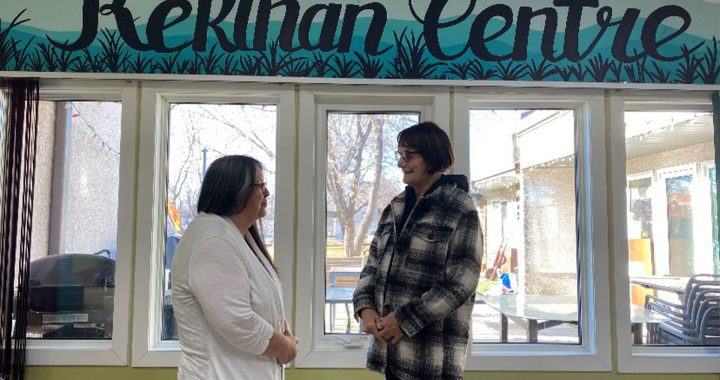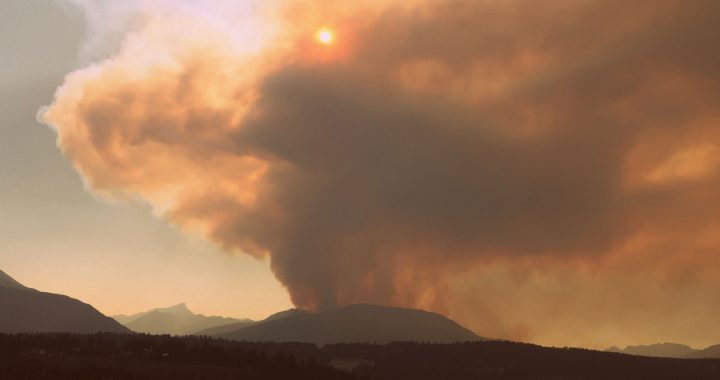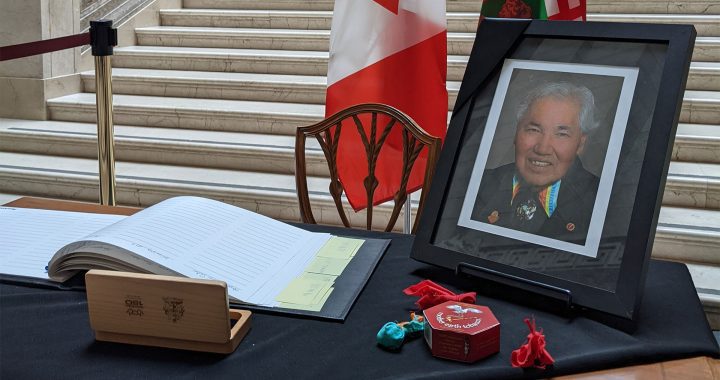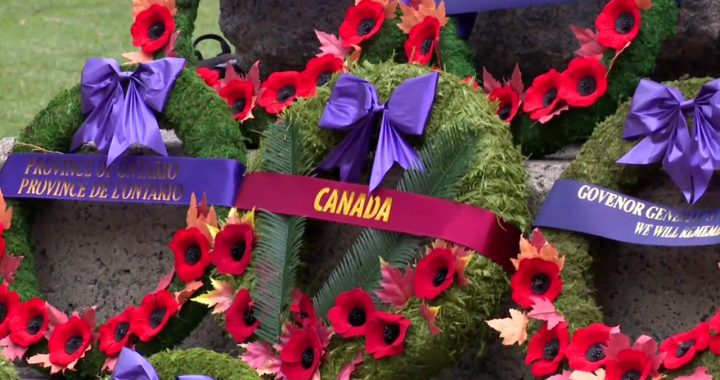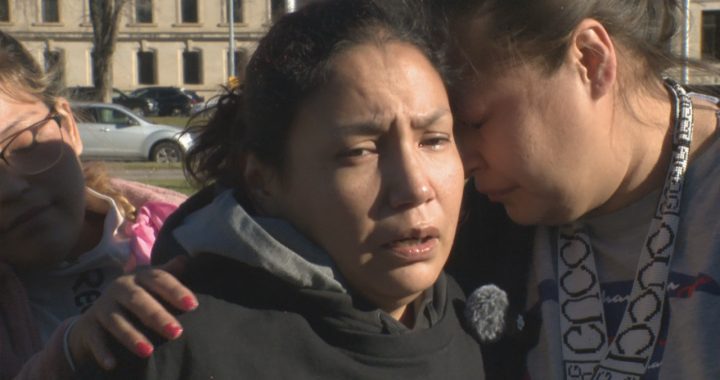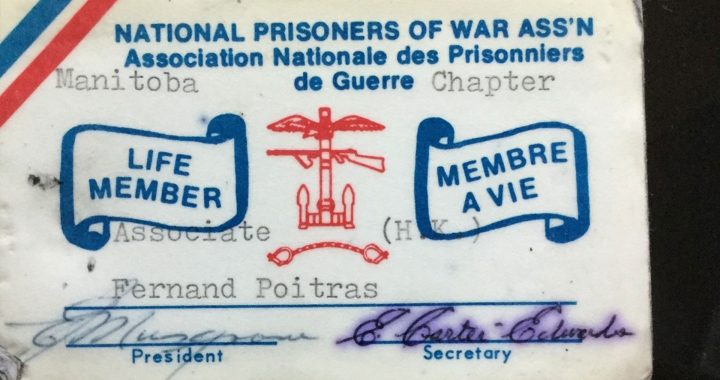Twenty-eight years – that’s how long Neskantaga First Nation has been under a boil water advisory – 10,317 days to be exact.
“It’s a sad situation,” says Christopher Moonias, the chief of the First Nation located roughly 450 km north of Thunder Bay.
Despite the ongoing work and testing at the water treatment plant, things don’t look good says Moonias, who believes his nation, already under the longest boil water advisory in Canadian history, will hit the 30-year mark.
Already, an entire generation has grown up not trusting the water from their taps.
“There’s been significant trauma associated with it. Post-traumatic stress disorder,” says Moonias on the latest episode of Face to Face. “I’ll give you an example of my daughter, she just turned 26 yesterday and she lives in Thunder Bay. She works here and she can’t bring herself to drink water from the tap, she has to have bottled water.
“That’s what she grew up knowing, the water from the tap is not good no matter where you go. That’s the trauma associated with having a long-standing boil water advisory.”
Indigenous Services Canada says it “continues to support Neskantaga First Nation as they work toward resolving the long-term drinking water advisory currently in place in the community.”
According to the government, Canada has invested $20.9 million for upgrades to the water treatment plant, operational supports and an additional $4.1 million for related wastewater system upgrades.
Indigenous services says construction of the upgraded water treatment system is substantially complete and the system was commissioned in December 2020.
“The water treatment plant is capable of producing clean water that meets provincial drinking water standards; however, some deficiencies remain. Deficiencies include performance testing to confirm that the system will meet the 20-year water needs of the community.
“This work has been delayed as a result of COVID-19,” wrote a spokesperson for Indigenous services.
Moonias says when and if the boil water advisory is lifted, the First Nation will need supports in place to address the trauma of the long-standing situation so people will “trust the taps.”
Moonias started his two-year term as chief of Neskantaga First Nation on April 1, the second time he’s served the nation as chief.
Just days before he was sworn in, he was removed from the Ontario legislature for speaking out during question period.
It was over the so-called Ring of Fire, a mineral rich area in Ontario’s north that has long been compared to the oil sands in Alberta.
The company Ring of Fire Metals describes it’s Eagle’s Nest Project as “one of the largest undeveloped, high grade nickel-copper-platinum-palladium deposits in the world.”
Mining companies and politicians have been talking about the Ring of Fire’s economic potential for nearly two decades.
In 2018, during the Ontario provincial election, Doug Ford pledged to get the Ring of Fire moving, even it he had to “hop on a bulldozer” himself to build the road to the remote mining area in the James Bay lowlands.
“It’s not going to be easy to hop on a bulldozer and bulldoze our territory,” says Moonias who has been calling for a meeting with Ford.
“We have a lot of discussions, we have a lot of things to talk about. We have a long way to go before anything like this happens. We have our rights, we have our inherent rights, we have our laws. We have our community protocols that have to be respected,” says Moonias.
In March, Ontario approved the terms of reference designed and submitted by Webequie First Nation and Marten Falls First Nation for an all-season, multi-use road connecting the proposed mining development to the provincial highway network.
Read More:
‘We never surrendered our rights’: Treaty 9 Nations launching $95B claim against Canada, Ontario
In a press release, the province said it has “dedicated close to $1 billion to support critical legacy infrastructure in the Ring of Fire area including constructing all‑season roads, investing in high-speed internet, road upgrades and community supports.”
The announcement, made at the annual Prospectors and Developers Association of Canada convention in Toronto was immediately blasted by Wayne Moonias, who was chief of Neskantaga, at the time.
Wayne Moonias recorded a video, in front of the Ring of Fire Metals booth at the conference and said, “you’re going to have to kill us before you cross our river system.”
“We don’t know what’s going to happen,” says Christopher Moonias. “If they’re going to bulldoze without our consent, then we will act accordingly. We will have to stand in front of the bulldozer, I guess. Looking at other projects that are around, I don’t see Attawapiskat prospering from the Victor Mine. They’re still under a boil water advisory, there’s still a lack of houses. I’ve seen other communities, other nations around Musslewhite that haven’t really prospered from those.
“We want to make sure that if, if we’re ever going to decide to allow development, we want to make sure that we meaningfully participate, and we benefit.”
In an emailed statement, Ring of Fire Metals CEO, Kristan Straub wrote, “we are committed to transparent engagement and genuine partnership with indigenous communities, including Neskantaga First Nation.”
“Our current understanding is that our present and planned development activities fall within the traditional territory of Marten Falls First Nation and in proximity to the traditional territory of Webequie First Nation, based on extensive input from both these communities. We have not made a final determination about Neskantaga’s rights or traditional territorial assertions and have extended invitations to meet with their leadership to discuss our assessment further.
“We have also offered them resources to assist in gathering the information required to support their traditional territorial assertion. To date, Neskantaga has not accepted our invitations.”
Moonias strongly disagrees with that assertion.
“The so-called Ring of Fire is located on our area homelands. We live on that river. We’re the only First Nation other than Attawapiskat that lives on that river and that’s why our position is so strong. And we have a right and a say what goes on, on our homelands,” says Moonias adding the First Nation has never given up or ceded rights to that area.
When asked if he thought the long-stalled, Ring of Fire development would ever get off the ground, Moonias said, “not when we have something to say about it.”








